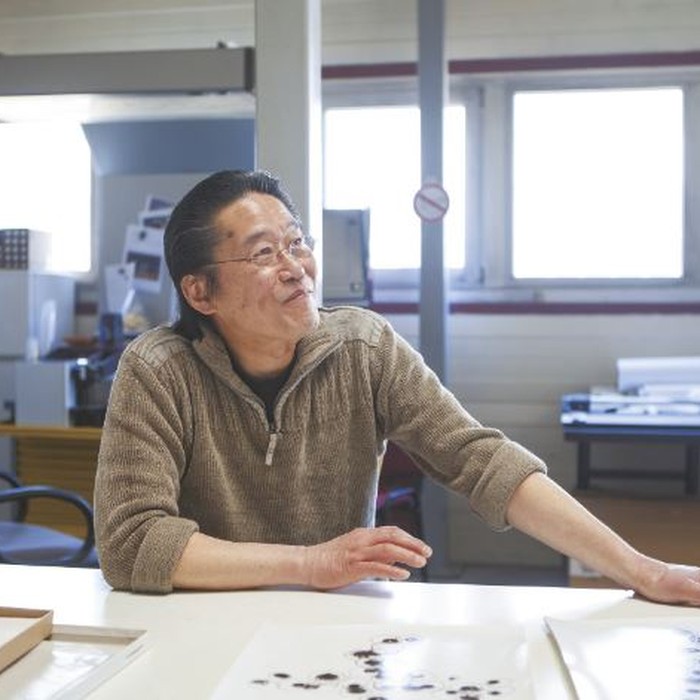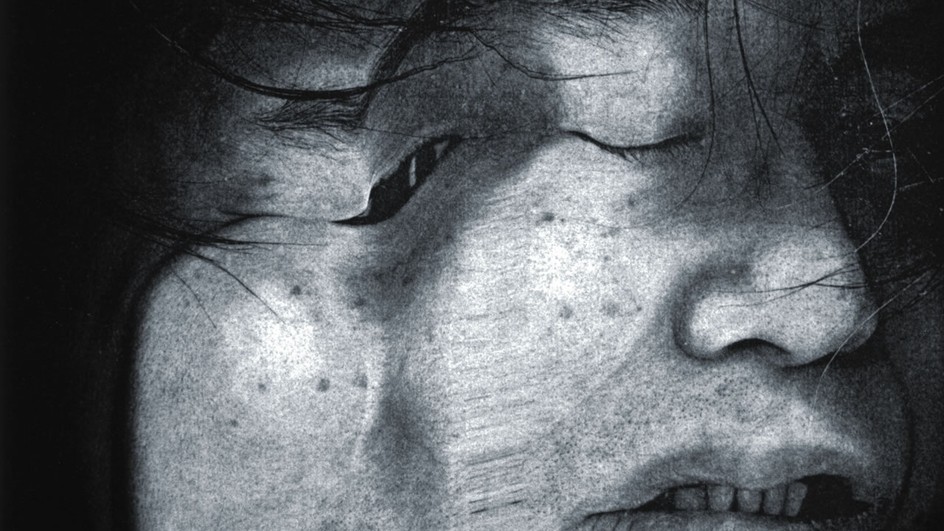
Artiste-professeur invité
2008 - 2009
Choi Chung Chun
Born in 1949 (Hong Kong SAR China)
In 1965, Choi left Hong-Kong and settled in France. For a few years, he exerted different professions in the Graphic Arts whilst attending the Fine art school in Paris.
Then he decided to devote himself to photographic printing and worked in various Parisian laboratories.
In 1998, he co-founded the Cyclope Laboratory with Jean Barbier. Choi worked with the most important photographers: Helmut Newton, Bettina Rheims, Nan Goldin, Jim Dine, and many other photographers and artists request his collaboration.
From 2005, whilst continuing his profession as photographic developer, Choi began his own work on the figure and the self-portrait.
Self-portraits in hell
Photography established itself in the 19th century with portraits. Flattering portraits of important ladies and gentlemen, but also and especially, which we tend to forget, identity portraits without make-up of criminals and the insane that the police and psychiatrists worked on, by superposition, classifying by type, in order to learn how to improve their diagnosis.
The portraits of Baudelaire by Nadar, a friend whose lens the poet dreaded, are examples of worldly portraiture as well as portraits of a mad man.
In the history of painting and sculpture of portraits, we tend to retain the praises of the physical beauty or the moral and social dignity of their models. The Mona Lisa resumes this wide category, hence the universal success of this Western icon. But we forget that Leonardo was, as a caricaturist, as fierce as Jerome Bosch, inventing monstrous, sub-animal deformities of human features. Without going as far, the physiognomy of the naturalist Giacomo della Porta in the 16th century, the expression of the passions and the characters of the painter Charles Le Brun in the 17th century, the "science" of Lavater in the 18th century and that of Lumbroso in the 19th century, have each established a whole range of physical traits of the face embellished or deformed by emotion, humanized or animalized by passion.
Hogarth, Goya, Füssli played on these, not only to reveal the comic side of the human face, but also the terror and the horror that it can inspire. At the height of the neo-classical era enamoured with Greek profiles, the Austrian sculptor Messerschmidt modelled and cast in bronze a series of self-portraits in the mirror, where his own face, twisted and disfigured by suffering or madness, literally "loses" face, like the portrait of pope Innocent X by Velasquez so often disfigured by Francis Bacon. In the 17th century, anticipating Messerschmidt, le Bernin sculptured the features of a damned man so violently tortured by pain and madness that his face has almost disappeared. Practiced by French monks who were haunted by the dissimilarity between fallen man and his image in the Creator's eyes, the optical and catoptrics of the 17th century, precursors of the photographic technique, explored the terrifying and infinite plasticity of the human face. Their anamorphoses offer the viewer, a flat, stretched, disquieting and indecipherable blot. Reflected and placed upright on a cylinder mirror, this repulsive larva is recomposed and transforms into the portrait of King Louis XIII or the cardinal Richelieu.
The antithesis between the homage-portrait and the caricature-portrait is thus led by the optics of the anamorphoses up to the merciless theological compass of the creation, fall and redemption, revealing, at the same time as the unfathomable capacity for error of our perceptions, the gulf that separates the human face, created "in the image and likeness" of God, from its breath-taking deformities under the empire of sin and damnation.
Up until now, photography contented itself without limits to the easy antithesis between the glamorous homage-portrait and the caricature-portraits which inspire disgust, terror, indignation or compassion.
(...)
Marc Fumaroli

